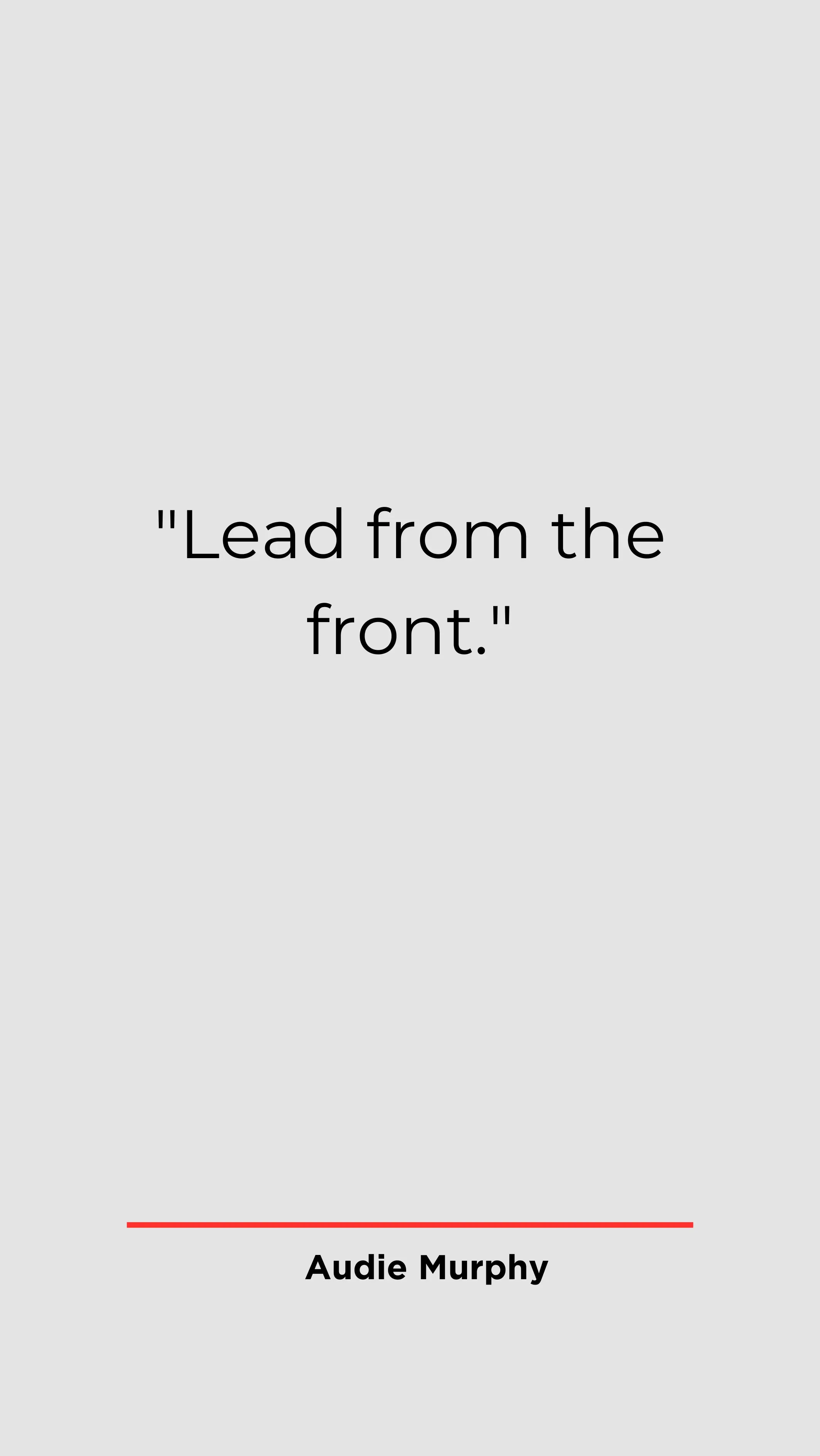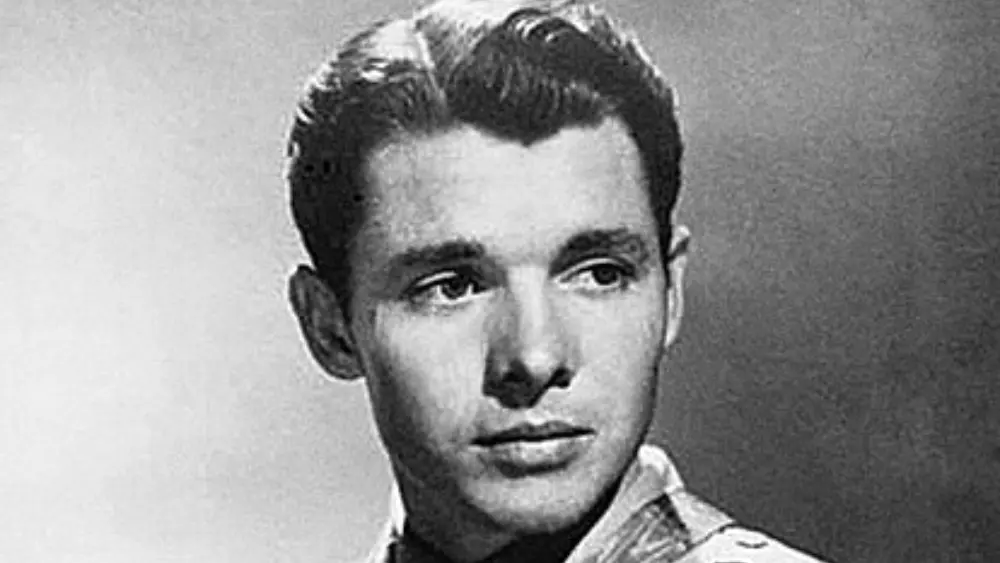Audie Leon Murphy, born on June 20, 1925, in Kingston, Texas, was a legendary American soldier, actor, songwriter, and advocate. He is best known for his extraordinary combat record during World War II, during which he earned numerous decorations for valor and bravery. After his military service, Murphy transitioned to a successful career in Hollywood. He made significant contributions to the entertainment industry through his work as an actor, songwriter, and author. At the same time, he became a powerful voice for veterans struggling with mental health issues. His life was nothing short of remarkable—one filled with courage, creativity, and compassion.
Early Life and Military Enlistment
Audie Murphy’s early life was marked by hardship and poverty. He was one of twelve children in a sharecropping family, and life during the Great Depression was unforgiving. After his father abandoned the family, Murphy dropped out of school in fifth grade to help support his siblings by working on farms and doing odd jobs. The death of his mother when he was only 16 devastated him, yet it became a pivotal turning point. Orphaned at a young age, Murphy was left to care for his younger siblings. This responsibility fostered an unshakable sense of duty and resilience that would shape his character and guide his future decisions.
Determined to serve his country after the attack on Pearl Harbor, Murphy attempted to enlist in multiple branches of the military but was turned down for being underweight and underage. Finally, in 1942, at the age of 17, he falsified documents to join the U.S. Army. This tenacious move marked the start of an unprecedented journey from a Texas farm boy to a symbol of American heroism.
Audie Murphy: World War II Heroism
Murphy’s service in the U.S. Army during World War II is the stuff of legends. He served in North Africa, Italy, and France as part of the 3rd Infantry Division. His courage under fire and quick decision-making on the battlefield earned him rapid promotions, making him one of the youngest officers in the U.S. Army during the war.
His heroic deeds are numerous and awe-inspiring. One of the most iconic moments came during the Battle of Holtzwihr in January 1945. During this battle, Murphy mounted a burning tank destroyer, manned its machine gun, and single-handedly held off a company of advancing German soldiers for over an hour. Despite being wounded, he called in artillery strikes and refused to retreat, saving his unit from being overrun. This act of immense bravery turned the tide of the battle and earned him the Medal of Honor.
Murphy participated in several critical campaigns during World War II, including the Battle of Anzio and the liberation of Southern France. His leadership and sheer willpower consistently inspired his comrades on the battlefield. Throughout the war, Murphy was credited with killing or wounding over 240 enemy soldiers. He received 33 awards and decorations from the U.S. military and allied countries, making him the most decorated American combat soldier of World War II.
Medal of Honor Recipient
Audie Murphy’s Medal of Honor citation stands as a solemn and inspiring testament to valor. It reflects a moment in which one man defied all odds to protect his fellow soldiers. The Medal of Honor, awarded by President Harry S. Truman, recognized his bravery and unmatched heroism during the Battle of Holtzwihr.
Murphy’s commendation highlighted his “indomitable courage.” His refusal to give an inch of ground ultimately saved his company from possible encirclement and destruction. His bravery on the battlefield did not go unnoticed. In addition to receiving the Medal of Honor, Murphy was awarded the Distinguished Service Cross, two Silver Stars, and the Bronze Star. He also earned three Purple Hearts and numerous other American and foreign decorations.
Murphy’s humility in the face of such accolades only deepened the public’s admiration for him. He often stated that the real heroes were the men who didn’t come back. He reminded Americans that the price of freedom is often paid in silence by the fallen.
Audie Murphy: Post-War Struggles and Advocacy
After the war, Murphy returned home a national hero. But behind the accolades was a man deeply scarred by the horrors he had witnessed. He suffered from severe insomnia, depression, and what we now know as post-traumatic stress disorder (PTSD). In an era when mental health among Veterans was not well understood or openly discussed, Murphy became one of the first public figures to speak out about the emotional wounds of war.
He slept with a loaded pistol under his pillow, had frequent nightmares, and struggled with survivor’s guilt. Instead of hiding these issues, he bravely spoke out in interviews and on national platforms, advocating for better treatment and support for returning Veterans. His efforts played a critical role in beginning the long-overdue national conversation about the psychological impact of combat.
Murphy also refused to let the U.S. government forget about its wounded warriors. He used his fame to demand reform and raise awareness, pushing for increased funding for mental health programs and more understanding of PTSD—a condition not officially recognized by the military at the time.

Hollywood Career
Audie Murphy’s good looks, rugged demeanor, and undeniable charisma quickly caught the attention of Hollywood. With the help of actor James Cagney, who recognized Murphy’s potential, he transitioned into acting. Over the next two decades, Murphy starred in more than 40 films, primarily in the Western and war film genres.
Murphy quickly became a box-office draw, starring in films like The Red Badge of Courage, Gunfight at Comanche Creek, and The Quiet American. However, it was To Hell and Back (1955)—a film based on his own best-selling autobiography—that truly cemented his place in Hollywood history. Reluctantly, Murphy agreed to play himself in the film. His raw, authentic portrayal of his wartime experiences deeply resonated with audiences. It became one of the most successful films released by Universal Studios at the time.
Despite his success, Murphy remained modest and grounded. He often turned down roles that glorified violence and preferred to portray characters that highlighted integrity and sacrifice. His work in Hollywood allowed him to share a piece of his story with a wider audience and helped Americans understand the true cost of war.
Audie Murphy: Songwriting and Writing Career
In addition to acting, Murphy explored his love for writing and music. He penned over 15 songs, many of which were recorded by top country artists of the day, including Dean Martin, Charley Pride, and Eddy Arnold. His most successful song, “Shutters and Boards,” became a hit and showcased Murphy’s ability to craft emotionally rich, relatable lyrics. His songwriting often reflected themes of longing, loss, and the search for peace, mirroring his own internal struggles.
Murphy also became a published author. His autobiography, “To Hell and Back,” offered an unflinching look at his experiences in World War II. The book was both critically acclaimed and widely read, becoming a staple for those wanting a firsthand account of combat. His writing style was honest and evocative, helping readers understand not only the physical danger of war but also its emotional aftermath.
Legacy and Contributions
Audie Murphy’s legacy is etched into American history not just through medals and movies but through the lives he touched. His journey spanned the desolate fields of Texas, the battlefields of Europe, and the bright lights of Hollywood. His story embodies courage, complexity, and compassion. Together, these elements define a truly remarkable life.
He remains a symbol of resilience, not only for his wartime heroics but for his willingness to confront personal demons and help others do the same. Numerous schools, highways, and VA hospitals have been named in his honor. He is buried at Arlington National Cemetery, where his grave remains one of the most visited sites.
Murphy’s legacy also lives on through modern efforts to support Veteran mental health. His early advocacy helped pave the way for organizations like the Wounded Warrior Project and the VA’s expanded mental health services. His story is often used in educational and military training programs to exemplify leadership, sacrifice, and integrity.
Conclusion
Audie Murphy’s life is a profound reminder that heroes are shaped not only in moments of glory but also in the quiet struggles that follow. He endured a harrowing childhood that taught him resilience early on. His heroic military service earned him national recognition and solidified his place in history. Later, he found success in Hollywood and dedicated himself to tireless advocacy for Veterans, embodying the enduring strength of the human spirit.
His courage wasn’t confined to the battlefield—it was present in every step he took to help others, share his truth, and inspire future generations. In honoring Audie Murphy, we honor every soldier who has worn the uniform, faced the unimaginable, and returned home to build a life rooted in purpose.




